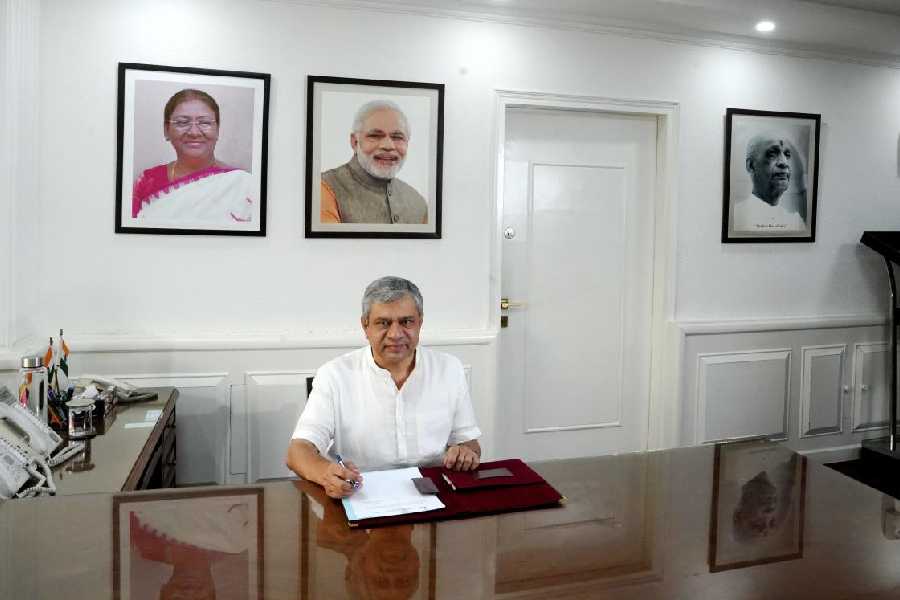Drafting of rules under the data protection legislation is in an advanced stage with industry-wide consultations slated soon, Union minister Ashwini Vaishnaw said on Saturday, asserting that India will also look at doubling electronics production and adding jobs under the Modi 3.0 government.
The minister for electronics and IT assured that regulatory work will see “good continuity” and that the agenda on digital regulatory framework remains “intact”. The timelines for semiconductor plants of Micron and the Tata group too are on track.
The process of implementation of the Digital Personal Data Protection (DPDP) Act will be based on the ‘digital-by-design’ principle, paving the way for a new way of working, and the work on creating this platform is also progressing. Such a platform or portal will be created in-house by the likes of NIC and DIC.
Parliament had passed the DPDP Act in August last year. This key piece of legislation aims to protect the privacy of Indian citizens while proposing a penalty of up to ₹250 crore on entities for misusing or failing to protect digital data of individuals.
“We had started the rules’ drafting work around December. DPDP rules drafting is in a very advanced stage. We will start the industry consultation now and go as extensive as we can,” Vaishnaw told reporters at a briefing.
Both the Telecom Act as well as the DPDP Act had entailed extensive consultations, he said while promising that the rules of DPDP too will not be a rushed affair and will involve “as consultative a process as can be”.
“We are working on creating a digital-by-design platform so implementation can be done in a digital form, which is part of the Act,” he said.
Vaishnaw, who took charge as minister for electronics and IT earlier this week, said he reviewed the work-in-progress on data protection rules and is happy with the outcomes. However, there will be tweaks and changes based on industry and stakeholder views, he said. The other big priority for the ministry is in the area of electronics production —where India has set its sights on becoming a global manufacturing powerhouse.
“In the last four months, queries have come on large players wanting to come in, on the process and modalities of setting up plants, and we have been directing them to OEMs so that OEMs and component manufacturers can have a synergy,” he said.
PTI










